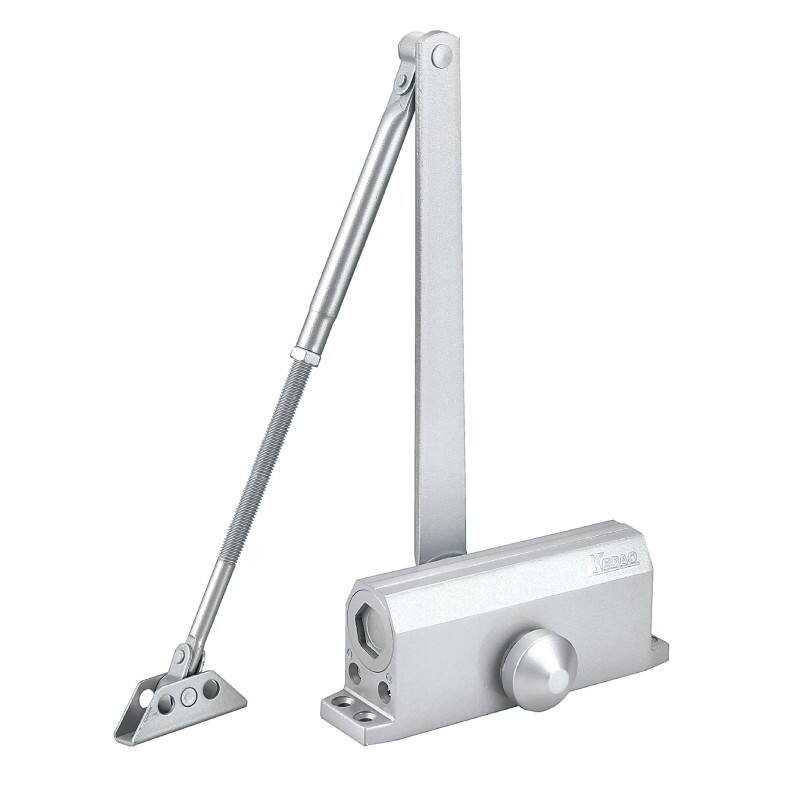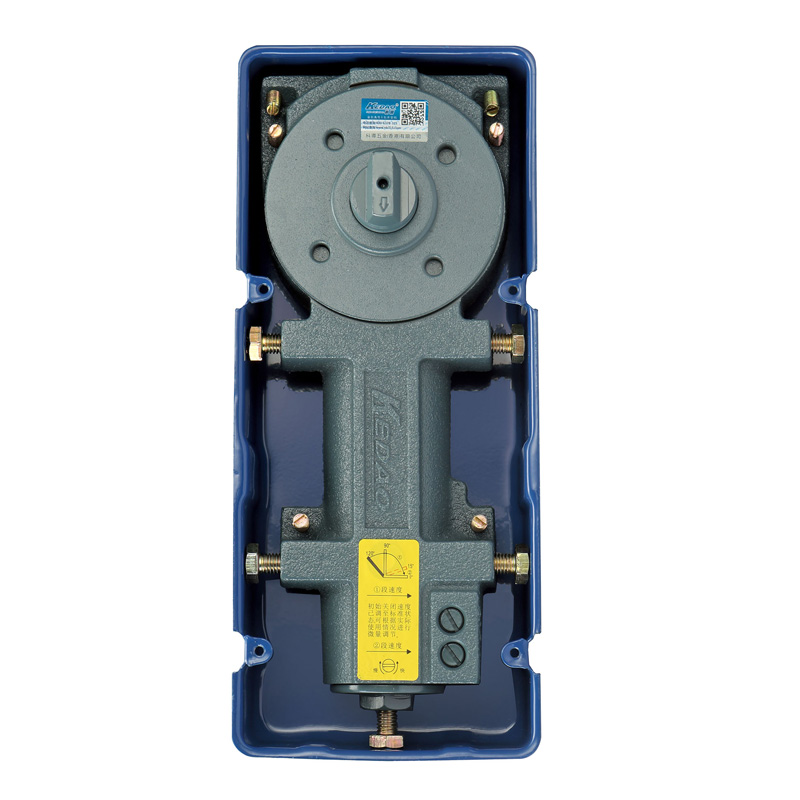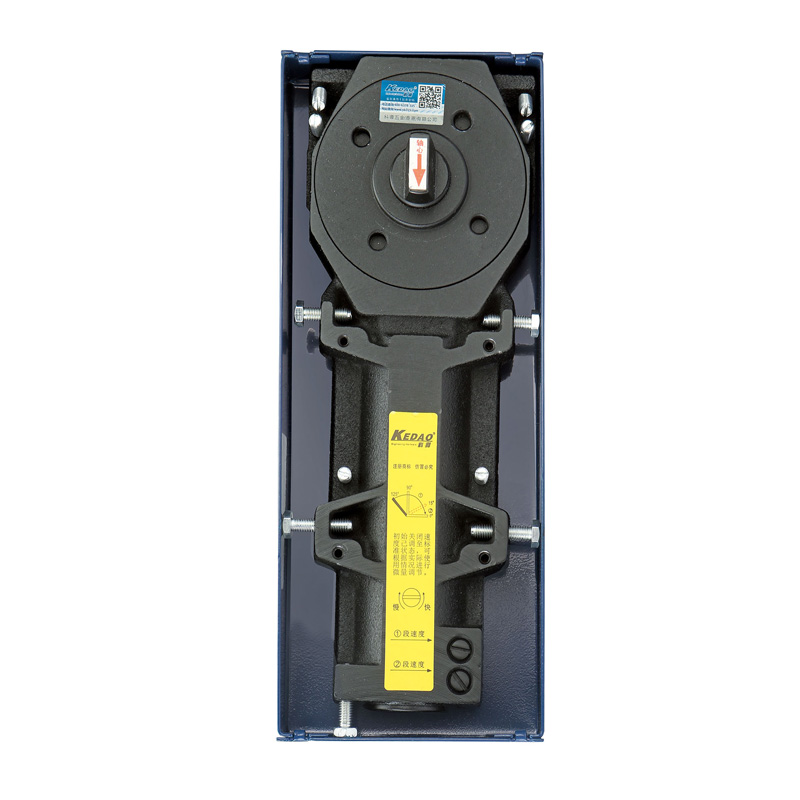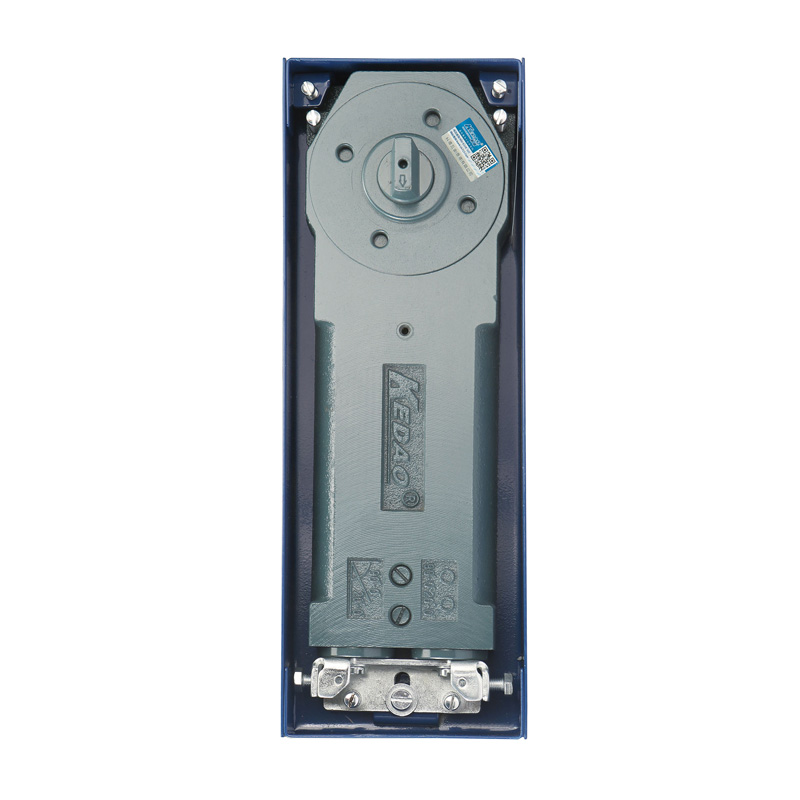Hydraulic door closers and pneumatic door closers differ in how they control the closing of a door and the medium they use to achieve this control. Here are the key differences between the two:
Control Mechanism
Hydraulic Door Closer: Hydraulic door closers use hydraulic fluid (usually oil) to control the motion of the door. They contain a hydraulic cylinder filled with fluid, which creates resistance to control the door's speed and force during opening and closing.
Pneumatic Door Closer: Pneumatic door closers, also known as air door closers, use air pressure to control the door's motion. They contain a pneumatic cylinder filled with air or a combination of air and gas. Changes in air pressure affect the door's closing speed and force.
Closing Speed and Force Adjustment
Hydraulic Door Closer: Hydraulic door closers typically offer more precise control over closing speed and force adjustments. They often have separate adjustment valves for controlling the closing and latching speeds. This allows for fine-tuning the door's behavior to meet specific requirements.
Pneumatic Door Closer: Pneumatic door closers may have limited adjustment options compared to hydraulic closers. Adjusting the closing speed and force on pneumatic closers can sometimes be less precise, as they rely on changes in air pressure for control.
Weather Resistance
Hydraulic Door Closer: Hydraulic door closers are generally more weather-resistant and can withstand a wider range of temperatures and environmental conditions. They are often used on exterior doors.
Pneumatic Door Closer: Pneumatic door closers may be less resilient in extreme weather conditions, and their performance can be affected by temperature fluctuations.
Durability
Hydraulic Door Closer: Hydraulic door closers are known for their durability and long lifespan. The use of hydraulic fluid and sturdy components often makes them suitable for heavy-duty and high-traffic doors. They are less prone to wear and tear, making them a reliable choice for long-term use.
Pneumatic Door Closer: Pneumatic door closers, while suitable for some applications, may not be as durable as hydraulic closers, particularly for doors subjected to frequent and heavy use. The pneumatic components can be more susceptible to wear over time.
Noise Level
Hydraulic Door Closer: Hydraulic door closers tend to operate more quietly and smoothly due to the controlled movement of hydraulic fluid. This makes them a preferable choice for areas where noise reduction is a consideration, such as offices or residential spaces.
Pneumatic Door Closer: Pneumatic door closers can produce more audible hissing or pneumatic sounds as air pressure is released during the closing process. While this may not be a significant concern for many applications, it's worth noting in quieter environments.
Installation Complexity
Hydraulic Door Closer: Installing hydraulic door closers may require more skill and expertise due to the need for precise adjustments and hydraulic fluid containment. Professional installation is often recommended for hydraulic door closers, especially for commercial and fire-rated doors.
Pneumatic Door Closer: Pneumatic door closers are generally simpler to install and may be suitable for DIY installation in some cases. However, proper alignment and adjustment are still crucial to ensure effective door operation.
Common Applications
Hydraulic Door Closer: Hydraulic door closers are versatile and suitable for a wide range of applications, including residential, commercial, and industrial doors. They are commonly used in places where precise control over door closing is essential, such as fire-rated doors.
Pneumatic Door Closer: Pneumatic door closers are often used in less demanding applications, such as lightweight residential screen doors or storm doors. They are less common in heavy-duty commercial or industrial settings.
Cost Considerations
Hydraulic Door Closer: Hydraulic door closers tend to be more expensive than pneumatic door closers, primarily due to their precision and durability. The higher cost may be justified for doors in heavy-use environments or where precise control is essential.
Pneumatic Door Closer: Pneumatic door closers are often more budget-friendly and can be an economical choice for lighter doors. However, they may require replacement or maintenance sooner than hydraulic closers in high-traffic areas.
Conclusion
Hydraulic door closers use hydraulic fluid for precise control over door speed and force, making them suitable for a wide range of applications, including heavy-duty and commercial doors. Pneumatic door closers use air pressure and are typically used for lighter doors in residential settings but may offer less precise control.
The choice between hydraulic and pneumatic door closers depends on factors such as the door's weight, intended use, durability requirements, budget constraints, etc. Assessing these factors will help determine which type of door closer is most suitable for a specific application. Contact Kedao to find the right and cost-effective door closer for your application at a reasonable price.






